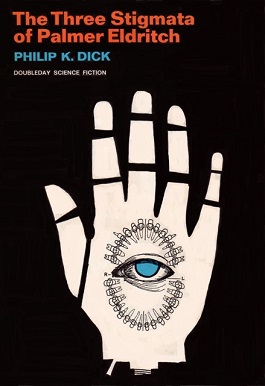
The Three Stigmata of Palmer Eldritch is a 1964 science fiction novel by American writer Philip K. Dick. It was nominated for the Nebula Award for Best Novel in 1965. Like many of Dick's novels, it utilizes an array of science fiction concepts and explores the ambiguous slippage between reality and unreality. It is one of Dick's first works to explore religious themes.

Poul William Anderson was an American fantasy and science fiction author who was active from the 1940s until his death in 2001. Anderson also wrote historical novels. He won the Hugo Award seven times and the Nebula Award three times, and was nominated many more times for each award.
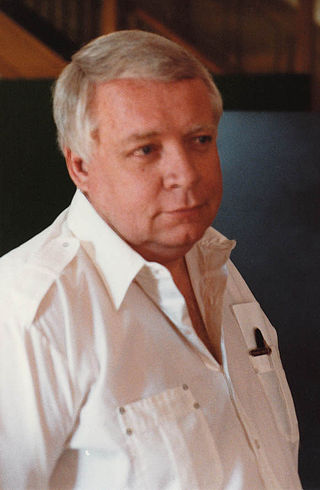
Algirdas Jonas "Algis" Budrys was a Lithuanian-American science fiction author, editor, and critic. He was also known under the pen names Frank Mason, Alger Rome in collaboration with Jerome Bixby, John A. Sentry, William Scarff, and Paul Janvier. In 1960, he authored Rogue Moon, a novel.

Robert Silverberg is an American author and editor, best known for writing science fiction. He is a multiple winner of both Hugo and Nebula Awards, a member of the Science Fiction and Fantasy Hall of Fame, and a Grand Master of SF. He has attended every Hugo Award ceremony since the inaugural event in 1953.

The Rest of the Robots is a collection of eight short stories and two full-length novels by American writer Isaac Asimov, published in 1964. The stories, centred on positronic robots, are all part of the Robot series, most of which take place in the Foundation universe. Another collection of short stories about robots, I, Robot, was re-published in the previous year, which is why Asimov chose to title the collection as The Rest of the Robots. None of the short stories in this collection were in I, Robot, however all of them were later included in The Complete Robot, and both novels about Elijah Baley were also published separately.
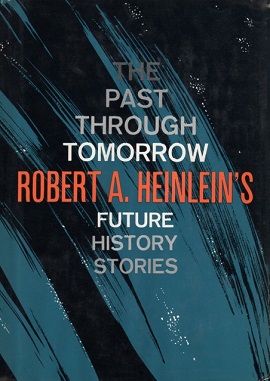
The Past Through Tomorrow is a collection of science fiction stories by American writer Robert A. Heinlein, first published in 1967, all part of his Future History.
In the science fiction of Cordwainer Smith, the Instrumentality of Mankind refers both to Smith's personal future history and universe and to the central government of humanity within that fictional universe. The Instrumentality of Mankind is also the title of a paperback collection of short stories by Cordwainer Smith published in 1979.
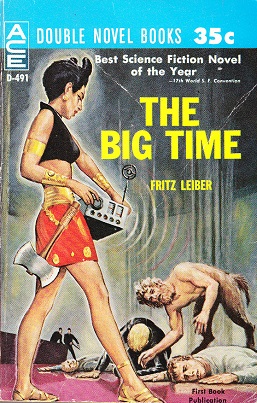
The Big Time is a short science fiction novel by American writer Fritz Leiber. Awarded the Hugo Award for Best Novel or Novelette in 1958, The Big Time was published originally in two parts in Galaxy Magazine's March and April 1958 issues, illustrated by Virgil Finlay. It was subsequently reprinted in book form several times. The Big Time is a story involving only a few characters, but with a vast, cosmic backstory.

Time and Stars is a collection of science fiction short stories by American writer Poul Anderson, published in 1964.

Pavane is an alternative history science fiction fix-up novel by British writer Keith Roberts, first published by Rupert Hart-Davis Ltd in 1968. Most of the original stories were published in Impulse. An additional story, "The White Boat", was added in later editions.
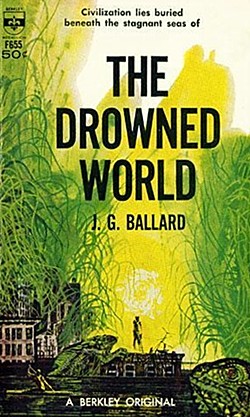
The Drowned World (1962), by J. G. Ballard, is a British science fiction novel that depicts a post-apocalyptic future in which global warming, caused by increased solar radiation, has rendered uninhabitable much of the surface of planet Earth. The story follows a team of scientists who are researching the environmental developments that occurred in the flooded city of London. The novel is an expansion of the novella "The Drowned World", which was first published in Science Fiction Adventures magazine, in the January 1962 issue, Vol. 4, No. 24.
The Golden Age of Science Fiction, often identified in the United States as the years 1938–1946, was a period in which a number of foundational works of science fiction literature appeared. In the history of science fiction, the Golden Age follows the "pulp era" of the 1920s and 1930s, and precedes New Wave science fiction of the 1960s and 1970s. The 1950s are, in this scheme, a transitional period. Robert Silverberg, who came of age then, saw the 1950s as the true Golden Age.
Edgar Pangborn was an American writer of mystery, historical, and science fiction.
Thomas L. Sherred was an American science fiction writer.

The Squares of the City is a science fiction novel by British writer John Brunner, first published in 1965 (ISBN 0-345-27739-2). It was nominated for the Hugo Award for Best Novel in 1966.
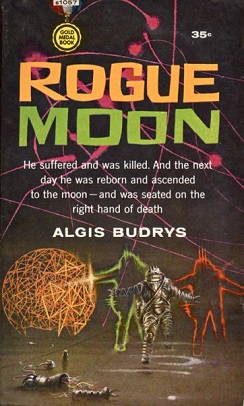
Rogue Moon is a short science fiction novel by Lithuanian-American writer Algis Budrys, published in 1960. It was a 1961 Hugo Award nominee. A substantially shortened version of the novel was originally published in F&SF; this novella-length story was included in The Science Fiction Hall of Fame, Volume Two, edited by Ben Bova. It was adapted into a radio drama by Yuri Rasovsky in 1979.

"By the Waters of Babylon" is a post-apocalyptic short story by American writer Stephen Vincent Benét, first published July 31, 1937, in The Saturday Evening Post as "The Place of the Gods". It was republished in 1943 The Pocket Book of Science Fiction, and was adapted in 1971 into a one-act play by Brainerd Duffield.
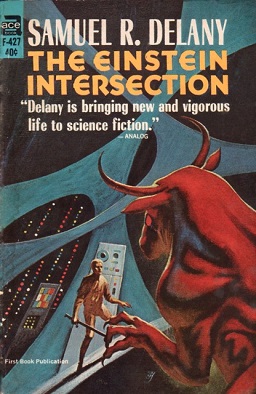
The Einstein Intersection is a 1967 science fiction novel by Samuel R. Delany. The title is a reference to Einstein's Theory of Relativity connecting to Kurt Gödel's Constructible universe, which is an analogy to science meeting philosophy. The original publisher, Ace Books, changed Delany's originally intended title from A Fabulous, Formless Darkness for commercial reasons.
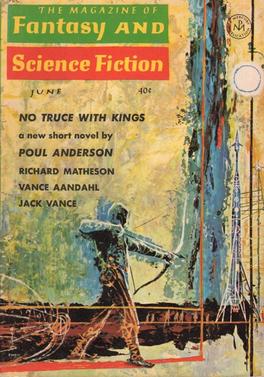
"No Truce With Kings" is a science fiction novella by American writer Poul Anderson. It won the Hugo Award for Best Short Fiction in 1964, and the Prometheus Award for Classic Fiction in 2010. The title is taken from Rudyard Kipling's poem "The Old Issue" (1899), in which kings represent tyranny or other forms of imposed rule, to be fought to preserve hard-won individual freedoms.
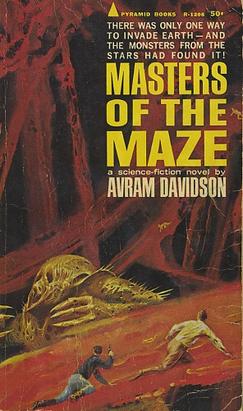
Masters of the Maze is a science fiction novel by American writer Avram Davidson, originally published in 1965 by Pyramid Books with a cover by John Schoenherr. The first UK edition, the only hardcover to date, was issued by White Lion in 1974. An American paperback reprint followed from Manor Books in 1976. Ebook editions appeared in 2012, from both Prologue Books and SF Gateway.
















